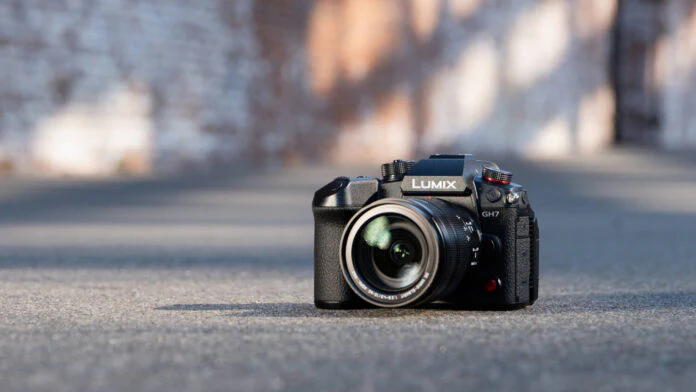
Pete Tomkies’ blog post on Videomaker introduces the new Panasonic LUMIX GH7, a flagship micro four-thirds mirrorless camera. Building on the success of the LUMIX GH6, the GH7 features a 25.2 MP BSI CMOS sensor with over 13 stops of dynamic range. This advanced sensor enhances light-gathering efficiency, resulting in higher sensitivity and reduced noise.
Panasonic LUMIX GH7 Key Features:
High-Resolution Video Recording:
- Records up to 5.7K 30p in ProRes 422 HQ and ProRes RAW HQ.
- Supports 10-bit 4:2:2 DCI 4K and UHD 4K up to 60p.
- Offers 10-bit 4:2:0 recording up to 120 fps.
- Provides 5.8K full-sensor open gate recording at up to 30p.
- Features unlimited video recording up to C4K 60p with internal cooling.
Advanced Autofocus and Stabilization:
- Includes Phase Detection Autofocus (PDAF) for precise focus.
- Introduces real-time autofocus for airplanes and trains.
- Enhanced image stabilization with perspective distortion correction.
- High mode in Active IS for powerful stabilization on the move.
Professional Audio Capabilities:
- First interchangeable lens digital camera with 32-bit float audio recording.
- Requires optional DMW-XLR2 XLR microphone adapter for 32-bit float audio.
Versatile Storage and Workflow Integration:
- Dual card slots for CFexpress Type B and UHS-II SD cards.
- Real Time LUT feature for applying LUTs during recording.
- Proxy recording for efficient editing workflows.
- Native Camera to Cloud integration with Adobe Frame.io.
Durability:
- Dust and splash resistant.
- Freeze-resistant down to 14°F (-10°C).
The Panasonic LUMIX GH7 offers outstanding video recording capabilities, making it a top choice for professional video shooters. Its internal ProRes HQ and ProRes RAW recording capabilities, along with high frame rate options, provide exceptional video quality. The inclusion of 32-bit float audio recording, previously requiring external equipment, is a significant advantage for solo videographers. The GH7 is set to become a favorite among micro four-thirds camera enthusiasts, thanks to its robust features and user-friendly design.
Read the full blog post by Pete Tomkies for Videomaker HERE
